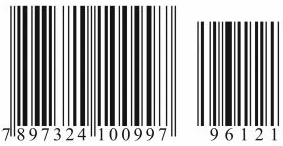Beeps per Minute
by Brandon Fuller How do peer preferences affect your own? Recently, this blog examined a paper by economists Michael Kremer and Dan Levy about the peer effects of alcohol use among college students (archived link here). The paper suggests that students who are randomly assigned to frequent-drinking roommates will, on average, earn a lower grade point average (GPA) than students matched with non-drinkers. According to the authors, students exposed to frequent-drinking roommates develop a strong taste for booze--a taste that sticks around and continues to lower their GPAs in the years after the roommate situation changes. More broadly, the paper suggests that peer consumption preferences may exert an eerily strong influence over our own. Economists also refer to this phenomenon as the "demonstration effect."
How do peer preferences affect your own? Recently, this blog examined a paper by economists Michael Kremer and Dan Levy about the peer effects of alcohol use among college students (archived link here). The paper suggests that students who are randomly assigned to frequent-drinking roommates will, on average, earn a lower grade point average (GPA) than students matched with non-drinkers. According to the authors, students exposed to frequent-drinking roommates develop a strong taste for booze--a taste that sticks around and continues to lower their GPAs in the years after the roommate situation changes. More broadly, the paper suggests that peer consumption preferences may exert an eerily strong influence over our own. Economists also refer to this phenomenon as the "demonstration effect."What about the peer effects of our coworkers? In his latest column, Tim Harford--the Undercover Economist--writes about research by UC Berkeley economists Alexander Mas and Enrico Moretti on the peer effect among supermarket clerks. How do checkout clerks change their behavior when an especially fast clerk joins their shift? Do they slack off as the faster clerk picks up more of the workload? Or does the presence of a faster worker encourage them to boost their effort? Read Harford's latest Slate column to find out more.
Discussion Questions
1. Productivity is the amount of output per unit of labor input. How do Mas and Moretti measure the productivity of supermarket clerks?
2. According to Mas and Moretti, the presence of a quicker clerk encourages the other clerks to work harder. What is the size of the peer effect?
3. Mas and Moretti are convinced that peer effects, not checkout-stand congestion or managerial decisions, explain the changes in productivity. What makes them so sure?
4. A clerk's productivity rises only when a particularly fast colleague is facing (watching) her. If a clerk is looking at the back of a particularly fast colleague, her productivity does not change. What does this say about our motivation to work harder in the presence of an especially productive coworker? Given this evidence, what effect do you think automated checkout stands have on the work habits of supermarket clerks?
5. Suppose you're an analyst for a major supermarket chain. Given the results of Mas and Moretti's research, how would you go about designing shifts of workers with different productivity levels in order to maximize the number of beeps (checked items) per minute?
To view the abstract of Mas and Moretti's research paper, click here.
Labels: Peer Effects, Productivity



1 Comments:
At 4:32 PM, January 21, 2007, Anonymous
said…
Anonymous
said…
I love the blog that you have. I was wondering if you would link my blog to yours and in return I would do the same for your blog. If you want to, my site name is American Legends and the URL is:
www.americanlegends.blogspot.com
If you want to do this just go to my blog and in one of the comments just write your blog name and the URL and I will add it to my site.
Thanks,
David
Post a Comment
<< Home